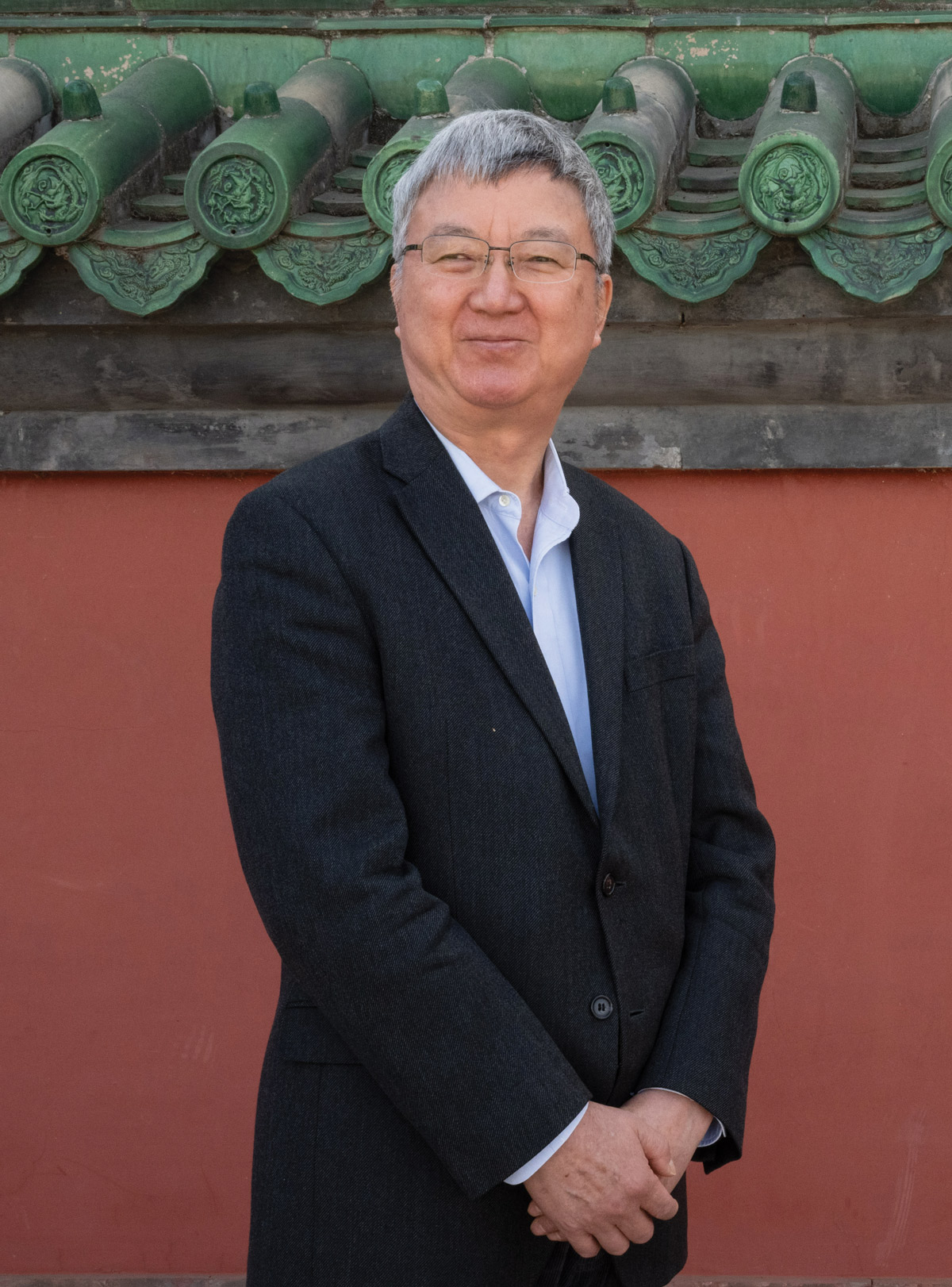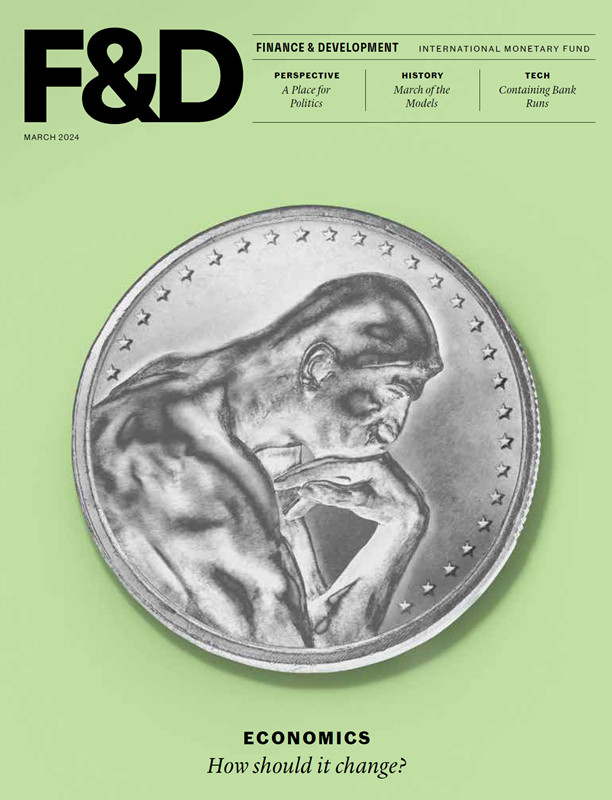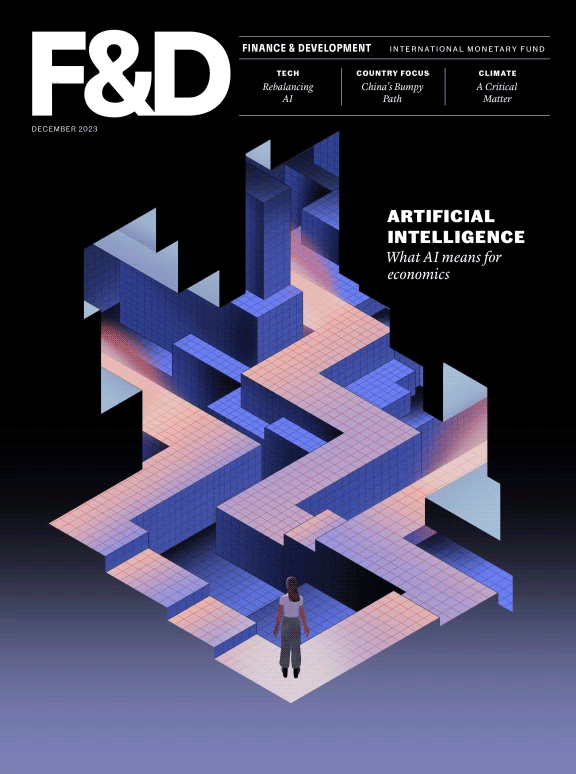Henny Sender profiles Zhu Min, China’s “international civil servant” who builds bridges with the West
The world has never worked the way economists may wish. Today, though, the world seems to represent the antithesis of everything Zhu Min believes and has worked toward, whether during his long tenure at the top of the IMF or at the heart of the policy debate in Beijing.
The IMF, like Zhu himself, has always stood for a borderless world where capital, people, technology, and trade flow fairly freely. It’s not surprising, therefore, that Zhu believes the biggest challenge facing this polarized planet—and the IMF itself—is anti-globalization.
“The world has changed,” Zhu concedes. “Yet the world still needs an international organization and a decent policy broker. Since I came to the IMF, I have stood for cooperation and financial stability. We are so interconnected; spillovers are everywhere.”

There is little of the theoretical economist in Zhu. Even now, eight years after he left the IMF following a fixed five-year term as a deputy managing director, Zhu identifies closely with the institution. “He is first of all an international civil servant,” says his former colleague Yan Liu, now deputy general counsel at the IMF.
Born in Shanghai in 1952, Zhu was caught up in the cultural revolution before earning a degree in economics from the prestigious Fudan University in 1982. As China relaxed restrictions, Zhu moved to the United States, where he completed a master’s in public administration at Princeton and a doctorate in economics at Johns Hopkins. He worked as an economist at the World Bank in the early 1990s, before returning to China to, he says, help rid the country of the poverty that he experienced.
After rising through the ranks of the state-owned Bank of China, he became deputy governor of the People’s Bank of China in 2009.
With China’s increased economic clout, it was inevitable that the IMF would seek to bring a senior Chinese official to Washington. Yet, in 2010, when Zhu, then 58, became a special advisor to the then managing director, Dominique Strauss-Kahn, and then a deputy managing director under Christine Lagarde, nobody could have predicted how quickly Zhu would adapt to his new home, nor the way he would make the IMF more responsive to the needs of all its member nations.
“Min is water,” says Siddharth Tiwari, who was then at the IMF’s Strategy, Policy, and Review Department, referring to Zhu’s adaptability and his ability to survive under the most
challenging circumstances.
“He came from a domestic Chinese system . . . and yet was able to totally integrate himself to an international financial network and an idiosyncratic institution. He is a person who shows that diversity brings strength not fragmentation.”
Zhu’s love for the institution is not unconditional, however. He believes the IMF must transform itself to rise to the challenges facing both the world and the institution itself, and to remain relevant as an honest broker. “The IMF has to think about its own independence and identity and commitment to the global commons,” he adds. “It needs to reposition itself.”
But can it? And will its largest shareholder, the US, allow it to do so?
Since Zhu left the IMF, China has changed a lot, the institution not so much. “Min represents the way things worked in China’s boom time. His formative years were when growth and reform were the primary concerns,” says one former IMF official who knows Beijing well. “It was all about integrating China with the world and a technocratic governance system in Beijing.”
Cultural revolution
Zhu himself rarely refers to the searing circumstances that shaped him growing up in Shanghai during the cultural revolution. Few of his generation of the urban elite did. “The cultural revolution meant suffering,” says Liu. “It either crushed you or made you stronger.”
For most of that turbulent decade, from the mid-1960s to the mid-70s, Zhu worked in a fish-canning factory in the city. He was, at least, more fortunate than his brother, who was sent to the countryside of impoverished Anhui province. Neither sibling ever graduated from high school but both managed to get into Fudan University after a 10-year hiatus in which all universities remained shuttered.
Yet, at least on the surface, Zhu displays few of the scars that mark his contemporaries, whose anger at the loss of the best years of their youth and lack of trust in all but the closest family members lie close to the surface.
He is yuan hua, says Helen Qiao, now Hong Kong SAR–based head of Asian economics for Bank of America, by which she means, he is like a pebble in a stream that has been smoothed by years of adversity. “Like many people from Shanghai, he isn’t open about what has shaped him.”
He would never say so, but Zhu displays few of the character traits that many Westerners (rightly or wrongly) associate with elite members of the mainland government: the hierarchy, the stiffness, the language of politically correct campaigns. Indeed, he is almost self-effacing.
Zhu is most often likened to former central bank governor Zhou Xiaochuan in their shared idealism and embrace of change. But the styles of the two senior officials differ markedly. “Min was always a team player. He played an advisory role and took a softer approach,” says the former IMF official. By contrast, “Zhou was always the aggressive reformer, always out front.”
At the IMF, Zhu quickly left his mark on key initiatives. In his first year, he helped bring about a 6 percent shift in quota shares to emerging market and developing economies, giving them greater sway over the institution. Then, in 2015, he pushed for the inclusion of the Chinese renminbi in the basket of currencies that determine the value of special drawing rights, international reserve assets created by the IMF. Both were important reforms.
At one point, when the IMF was under pressure to help with the euro area debt crisis, Zhu was instrumental in persuading China to contribute $45 billion to the cause. “It was by far the largest contribution,” Tiwari recalls. “Few Chinese could have the heft to do this.”
Zhu has always been both inclusive and practical, even as he preferred to work behind the scenes. “The institution was always so rigid,” says a second former IMF official with years of experience on the mainland. “He looked to have an impact where he could make a difference. He was the one who worked to give small island member states a voice.”
In addition, Zhu embraced the civil society aspect of life in Washington. He was constantly engaged in the volunteer activities that characterize American life, creating a book club (inspired by the two sons of his secretary, Malinee Ramiscal) and repairing and renovating housing on weekend missions to the poorer neighborhoods of his new home city.
Before returning to Beijing when his term ended, everyone from the electrician who changed his light bulbs to Tiwari received gifts to remember him by. (He presented Tiwari with a huge cloisonné vase that sat in his office. Every four years, Ramiscal, who was born on leap-year day, receives flowers from her former boss.)
Reforming mission
It has been eight years since Zhu returned to Beijing, where he is now deputy chairman of the China International Economic Exchange Centre, a think tank. Yet he continues his mission to reform the IMF.
His call for profound change comes at an awkward time, however. This is because the dominant voice in the IMF comes from the US, which is turning ever-more populist and protectionist. And that in turn raises the question of whether the IMF can actually control its own fate—supposing it even has the willingness to do so.
For example, despite so-called US exceptionalism (a term Zhu avoids), economic power in the world today is shifting away from the US. But voting rights at the IMF do not reflect the reality that half of global GDP comes from emerging markets. “The governance structure and voting rights at the IMF are way behind on this,” Zhu says.
Today, “nobody has suffered more than China from failure to adjust to these new economic realities,” says another of the several former IMF officials who spoke about Zhu. “It is in line with Chinese thinking and in line with the Global South.”
Moreover, at least indirectly, Zhu’s agenda challenges the dominance of the US—albeit in a way that will resonate with developing economies. For example, he is uneasy about the preponderance of the US dollar as the only currency with reserve status globally—a status that it maintains despite the explosion of the Federal Reserve balance sheet and the huge size of the fiscal debt. Instead, he wishes to see special drawing rights become more liquid and marketable.
He also believes that the needs of emerging market members are very different from the far narrower requirements of the small group of developed markets that set the IMF agenda in the past. The organization must broaden its focus from its traditional emphasis on current account balances, fiscal balances, and exchange rates to a policy stressing jobs and growth in the developing world while reducing income inequality. “It took me two-and-a-half years to get the board to agree to this,” he notes dryly.
In addition, Zhu wishes for the IMF to provide an early-warning system when crises are just beginning to emerge and then help build resilience through constructing regional safety nets. (Think of the Chiang Mai Initiative, which was formed shortly after the Asian financial crisis to provide multilateral swaps between the nations of Southeast Asia, Japan, South Korea, and China—and was in part meant to reduce dependence on the IMF.) Even more ambitiously, Zhu sees a coordinating role for the IMF in supporting carbon neutrality given the failure of both governments and capital markets to manage climate risk. “The World Bank can do projects,” he says. “But who can support global fiscal policy for financing the transition? Nobody is there.”
How realistic is this clarion call to action? Many recommendations go well beyond the IMF’s limited role today—and indeed it isn’t certain if any international organization has the capabilities Zhu calls for.
Constructive cooperation
Zhu may define himself ultimately as a reformer working for a world in which countries cooperate to foster a sustainable financial system, and where capital flows smoothly and efficiently to bring about productive growth, but he also lives in a Chinese world.
“He has always been an advocate of international harmony,” says Eswar Prasad, who has known Zhu since they were both at the IMF. “He wants China to play a constructive role and have a balanced dialogue on matters such as how to restructure the international monetary system.”
But that mission today is complicated by contentious issues between the IMF and Beijing concerning both China’s role in debt resolutions involving third countries and the IMF’s criticism of mainland government economic policy. Moreover, in an increasingly polarized world, it isn’t clear whether to be balanced is to be seen as out of step with policy in China while at the same time running the risk of being seen in the West as a spokesperson for Beijing.
It is precisely Zhu’s role as a bridge in the past that makes him seem a bit of an anomaly today. Can Zhu, who has always served as the mediator between China and the West, bring China and the IMF to a middle ground of consensus?
“He understood two worlds and spoke two languages,” says one of the former IMF officials. “But the people who could play that role are less influential today. When there are fewer people willing to play that role, without the Mins of this world on both sides, the potential for disastrous misunderstandings is there.”
Zhu, however, remains optimistic and patient. “He always told us, it may take years to move the mountain,” says Liu of the IMF. “But if it takes a long time to move the mountain, don’t wait. Move yourself.”
Opinions expressed in articles and other materials are those of the authors; they do not necessarily reflect IMF policy.









